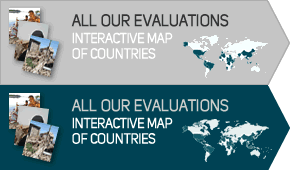Description of project
The Raising the Bar Project is designed to enhance transatlantic coherence and cooperation in humanitarian action. Over 18 months, a project team based on a unique network of transatlantic organizations conducted field-based empirical research to provide an in-depth analysis of current practices in four key areas of humanitarian policy – 1- Linking Relief, Rehabilitation, and Development (LRRD); 2- Improving Humanitarian Assistance through the Implementation of Lessons Learned; 3- Business Engagement in Humanitarian Action; 4- Civil-Military Relations in Disaster Response -, thereby helping to identify the potential and limits of joint transatlantic action. In order to foster joint transatlantic action, Raising the Bar also contains a multi-stakeholder dialogue component, the Transatlantic Dialogues on Humanitarian Action. These dialogues will bring together decision-makers, experts, and practitioners from the EU and US to discuss key research findings, and to develop an Action Plan for increased transatlantic cooperation and coordination as well as mutual learning in humanitarian action.
Raising the Bar seeks to contribute to these goals and to generate a concrete action agenda for the 2010 EU-US summit by conducting research and organizing a multi-stakeholder conference series, the Transatlantic Dialogues on Humanitarian Action. The program pursues three objectives:
To provide an in-depth analysis of the current state of the humanitarian policy debate and the relevant institutional setup as well as decision-making processes in the EU and the US, especially relating to four key topics in current humanitarian action.
To compare doctrines, funding principles, programs, and geographical and sectoral priorities of the EU and the US and propose specific areas where these principles and priorities can be made more complementary.
To foster a transatlantic multi-stakeholder dialogue on humanitarian policies, bringing together EU and US policy-makers, representatives of think tanks, NGOs, academia and the private sector.

Share this